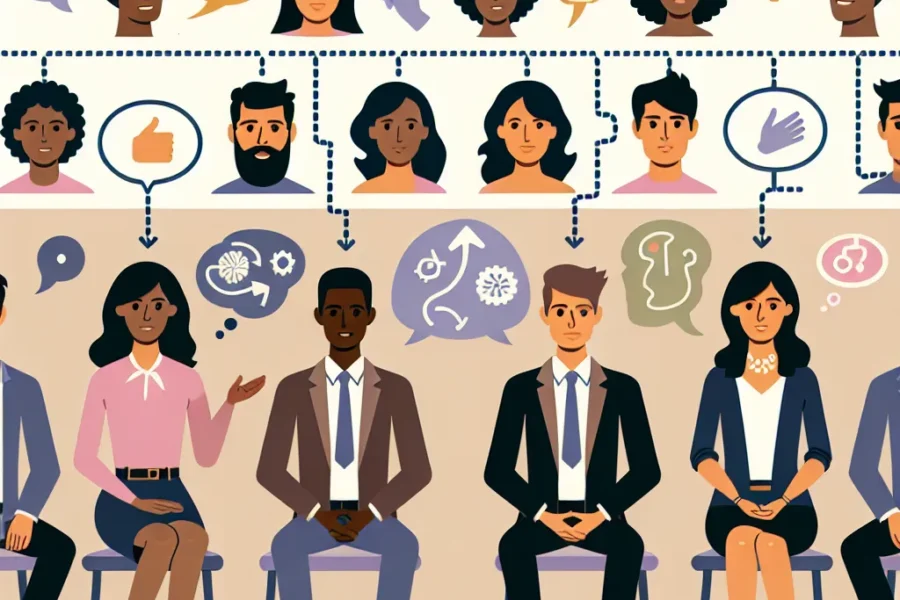Humor is a fascinating aspect of human behavior that has intrigued psychologists for decades. It is a multifaceted phenomenon that transcends cultures, languages, and personal differences, yet its psychological underpinnings have often been attributed to variations in personality. Understanding the psychology of humor involves examining how different personality types appreciate, express, and respond to humor, as well as considering the implications of laughter on individual well-being and social interactions.
The Psychology of Humor
Humor can be seen as a social lubricant, promoting bonding, reducing tension, and enhancing group cohesion. At an individual level, humor is a coping mechanism that can alleviate stress, enhance creativity, and improve one’s overall sense of well-being. Psychologists have identified several theories that attempt to explain why we find things funny. The incongruity theory, for instance, suggests that we laugh at things that defy our expectations. Superiority theory posits that humor arises from the feeling of superiority over others, while relief theory proposes that humor serves as a release of psychological tension.
Personality Types and Laughter
The Big Five personality traits—openness, conscientiousness, extraversion, agreeableness, and neuroticism—have been linked to differences in humor appreciation and production. Individuals high in openness tend to enjoy sophisticated and abstract forms of humor, as they are more likely to appreciate novelty and complexity. Conscientious people may favor humor that aligns with their values and beliefs, avoiding humor that could be seen as offensive or disruptive.
Extroverts, who tend to be sociable and assertive, often use humor as a means to engage with others. They might appreciate a broad range of humor, including slapstick, jokes, and playful banter. Agreeable individuals, on the other hand, may prefer humor that is less aggressive and more inclusive, facilitating harmony within their social groups.
Lastly, those with higher levels of neuroticism may have a complex relationship with humor. They might engage in self-defeating humor, which can serve as a defensive strategy but may also contribute to negative feelings. Alternatively, these individuals might benefit from humor that helps them to manage their mood and stress levels.
The Role of Laughter
Laughter is the physiological response to humor, and it plays a critical role in the psychology of humor. Laughter has several health benefits: it can reduce stress hormones like cortisol, enhance immune function, and even provide a mild workout. Socially, laughter is contagious and can quickly spread through a group, strengthening social bonds and fostering a sense of unity.
Laughter also serves as a powerful nonverbal communication tool. It can signal playfulness, mock aggression, or serve as an expression of shared understanding. Since different personality types may prefer different types of humor, the way individuals laugh—and how often—can also vary.
Humor in Relationships
When it comes to personal relationships, a shared sense of humor is often seen as a cornerstone of compatibility. It can help partners navigate conflicts, strengthen their bond, and create lasting memories filled with joy and laughter. Resilient couples often use humor in positive ways, engaging in playful teasing or mutual joking, which can deepen their intimacy.
However, the use of humor in relationships is not without risks. For instance, sarcasm or humor at one’s expense can sometimes lead to misunderstandings or hurt feelings. A person’s individual traits will often dictate their sensitivity to different types of humor and how they integrate humor within their relationships.
Humor in the Workplace
In the professional sphere, humor can be a double-edged sword. It can enhance creativity, improve morale, and foster a positive work environment. Leaders who effectively use humor may appear more approachable and relatable. Yet, humor can also be divisive if it is inappropriate or misunderstood, potentially leading to conflicts or discomfort among coworkers.
Understanding the diversity of personalities within a team and their humor preferences can be instrumental in creating a more inclusive and positive work culture. A considerate use of humor—mindful of the various personalities and cultural backgrounds—can be a valuable skill for navigating the complexities of workplace dynamics.
The Dark Side of Humor
While humor is often associated with positive outcomes, it’s essential to acknowledge that it can also have a dark side. Aggressive humor, which includes teasing, ridicule, or jokes that demean others, can be harmful and damaging. Similarly, self-deprecating humor, when used excessively, can become a negative coping strategy, reinforcing feelings of low self-worth and perpetuating a negative self-image.
Understanding one’s motives for using certain types of humor, and the impact it has on themselves and others, can be pivotal in harnessing humor in a healthy and constructive way.
Humor Across Cultures
Humor is not universal and can vary greatly from one culture to another. What is considered humorous in one context may be offensive or incomprehensible in another. Cultural norms, values, and language all influence the type and extent of humor that is appreciated and accepted. Respect and awareness of these differences are crucial in today’s globalized world, where interactions across cultural boundaries are increasingly common.
Conclusion
The psychology of humor is a rich and complex field that intertwines personality, laughter, social interactions, and culture. Individual differences in personality can greatly influence one’s humor preferences and styles. Laughter, in turn, serves as a potent social and psychological tool that can enhance communication, foster relationships, and support health and well-being. By acknowledging the different facets of humor and its various impacts on people, we can better appreciate the power of laughter and use it to create more joyous, cohesive, and supportive environments. Whether it’s in personal relationships, the workplace, or among diverse cultural contexts, a deeper understanding of the psychology of humor can lead to more effective and empathetic communication, and ultimately, a more harmonious world.



Leave a Comment